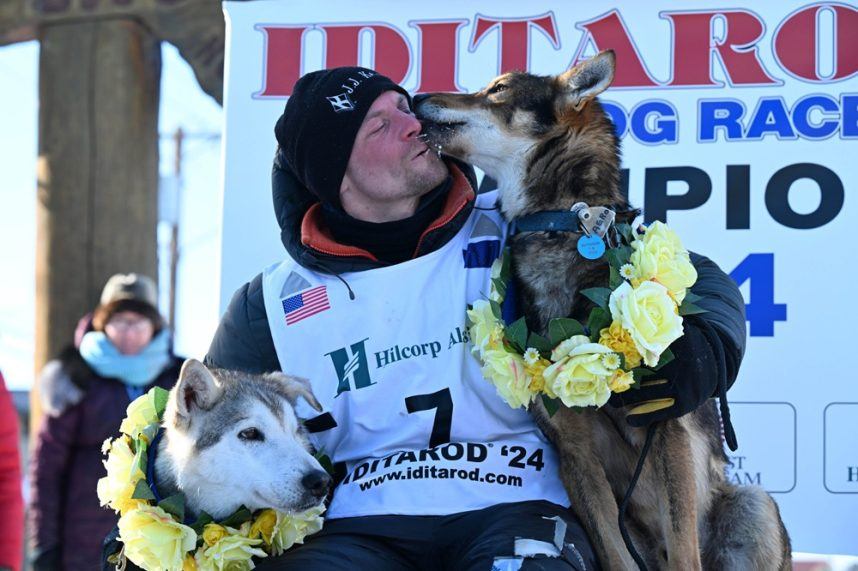Iditarod Husky Deaths Renew Calls for Ban on Alaska’s Iconic Iditarod Race
Posted on: March 17, 2024, 01:45h.
Last updated on: March 18, 2024, 08:10h.
A recent spate of dog deaths during Alaska’s grueling Iditarod mushing race has renewed calls to prohibit the event.

The Iditarod is one of the few opportunities for legal gambling in Alaska. The state allows charitable sweepstakes on certain culturally traditional games, while banning all else but charitable bingo. It also grudgingly accepts one tribal electronic bingo hall.
Also known by the tagline “The Last Great Race on Earth,” the Iditarod is a 1,000-mile dogsled endurance run from Anchorage in the south of the state to Nome in the freezing northwest. It involves teams of between 12 and 16 dogs pulling their sleds through subzero temperatures, blizzards, and gale-force winds.
Moose Attack
On Wednesday, this year’s event was won by five-time champion (now six) Dallas Seavey. He survived a moose attack to complete the course in nine days, two hours, 16 minutes, and eight seconds, winning the $55K first prize.
But Seavey’s achievements were overshadowed by the death of three huskies from three separate teams during the race and five more in training. These were the first canine fatalities in five years, although animal welfare groups claim more than 100 dogs have died over the 51-year history of the event.
These are not super dogs. They’re not indestructible pieces of sporting equipment,” Melanie Johnson, a PETA senior manager, told the Associated Press this week. “They are just like any other dog, and all they want is to live and enjoy love and companionship. But the Iditarod continues to push them beyond their capabilities, and as a result, dogs continue to suffer and die.”
The race was established in 1973 by local dog musher Joe Reddington, who wanted to revive the tradition of dogsledding that was dying out in Alaska because of the prevalence of snowmobiles. There is archeological evidence that Alaska Natives have used dogsleds to traverse the frozen landscape for hundreds of years.
Iditarod Trifecta
Alaska’s gambling laws permit nonprofit organizations to offer sweepstakes on dog mushing under certain conditions. For example, there must be two or more elements of chance involved when betting on mushing contests.
In 2020, this inspired the Iditarod’s organizers to launch the Iditarod Trifecta, where race enthusiasts could bet $10 on the winning musher, their time, and how many dogs they would finish with. However, the Iditarod Trifecta appears to have been discontinued.
Canned Salmon Classic
Other traditional sports and games that are legal to bet on under Alaska law include fishing competitions, such as The Fish Derby, as well as more peculiar contests like the Creamer’s Field Goose Classic and the Canned Salmon Classic.
The Goose Classic was “a game of chance where the participants have the opportunity to win a cash prize for guessing the closest time of arrival of the first goose to Creamer’s Field.” Meanwhile, the Canned Salmon Classic involved guessing the total number of cases of canned salmon that would be packed at the Petersburg salmon canneries during a certain period of time.
Sadly, neither of these events are still contested.
Related News Articles
Australian Football Umpire Arrested for Suspicious Bets on Fair Play Award
Most Popular
Casinos That Were Never Casinos
Most Commented
-
End of the Line for Las Vegas Monorail
— April 5, 2024 — 90 Comments -
Mega Millions Reportedly Mulling Substantial Ticket Price Increase
— April 16, 2024 — 9 Comments -
Sinclair Broadcast Group Selling 7.91 Million Bally’s Shares
— April 12, 2024 — 5 Comments
















No comments yet